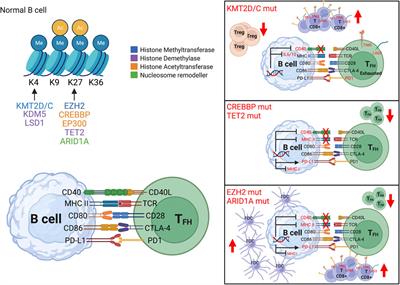EDITORIAL
Published on 19 May 2022
Editorial: B Cell Non-Hodgkin’s Lymphoma & Tumor Microenvironment Crosstalk: An Epigenetic Matter?
doi 10.3389/fgene.2022.912737
- 1,006 views
8,701
Total downloads
23k
Total views and downloads
EDITORIAL
Published on 19 May 2022
REVIEW
Published on 14 Feb 2022

REVIEW
Published on 07 Jan 2022

ORIGINAL RESEARCH
Published on 26 Nov 2021

ORIGINAL RESEARCH
Published on 05 Nov 2021

